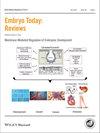Review disorders of sex development: The evolving role of genomics in diagnosis and gene discovery.
Q Medicine
引用次数: 27
Abstract
Disorders of Sex Development (DSDs) are a major paediatric concern and are estimated to occur in around 1.7% of all live births (Fausto-Sterling, Sexing the Body: Gender Politics and the Construction of Sexuality, Basic Books, New York, 2000). They are often caused by the breakdown in the complex genetic mechanisms that underlie gonadal development and differentiation. Having a genetic diagnosis can be important for patients with a DSD: it can increase acceptance of a disorder often surrounded by stigma, alter clinical management and it can assist in reproductive planning. While Massively Parallel Sequencing (MPS) is advancing the genetic diagnosis of rare Mendelian disorders, it is not yet clear which MPS assay is best suited for the clinical diagnosis of DSD patients and to what extent other established methods are still relevant. To complicate matters, DSDs represent a wide spectrum of disorders caused by an array of different genetic changes, many of which are yet unknown. Here we discuss the different genetic lesions that are known to contribute to different DSDs, and review the utility of a range of MPS approaches for diagnosing DSD patients. Birth Defects Research (Part C) 108:337-350, 2016. © 2016 Wiley Periodicals, Inc.性别发育障碍:基因组学在诊断和基因发现中的作用。
性发育障碍(dds)是一个主要的儿科问题,估计约占所有活产婴儿的1.7% (Fausto-Sterling,对身体进行性别划分:性别政治和性的建构,Basic Books,纽约,2000)。它们通常是由性腺发育和分化的复杂遗传机制的破坏引起的。对DSD患者来说,进行基因诊断可能很重要:它可以增加人们对这种常常被耻辱感包围的疾病的接受度,改变临床管理,还可以帮助生育计划。虽然大规模平行测序(MPS)正在推进罕见孟德尔疾病的遗传诊断,但尚不清楚哪种MPS检测最适合DSD患者的临床诊断,以及其他已建立的方法在多大程度上仍然相关。更复杂的是,dsd代表了由一系列不同的基因变化引起的广泛的疾病,其中许多是未知的。在这里,我们讨论了不同的遗传病变,已知有助于不同的DSD,并回顾了一系列MPS方法诊断DSD患者的效用。出生缺陷研究(C辑)(8):337- 335,2016。©2016 Wiley期刊公司
本文章由计算机程序翻译,如有差异,请以英文原文为准。
求助全文
约1分钟内获得全文
求助全文
来源期刊

Birth Defects Research Part C-Embryo Today-Reviews
DEVELOPMENTAL BIOLOGY-
CiteScore
3.65
自引率
0.00%
发文量
0
审稿时长
>12 weeks
期刊介绍:
John Wiley & Sons and the Teratology Society are please to announce a new journal, Birth Defects Research . This new journal is a comprehensive resource of original research and reviews in fields related to embryo-fetal development and reproduction. Birth Defects Research draws from the expertise and reputation of two current Wiley journals, and introduces a new forum for reviews in developmental biology and embryology. Part C: Embryo Today: Reviews
 求助内容:
求助内容: 应助结果提醒方式:
应助结果提醒方式:


